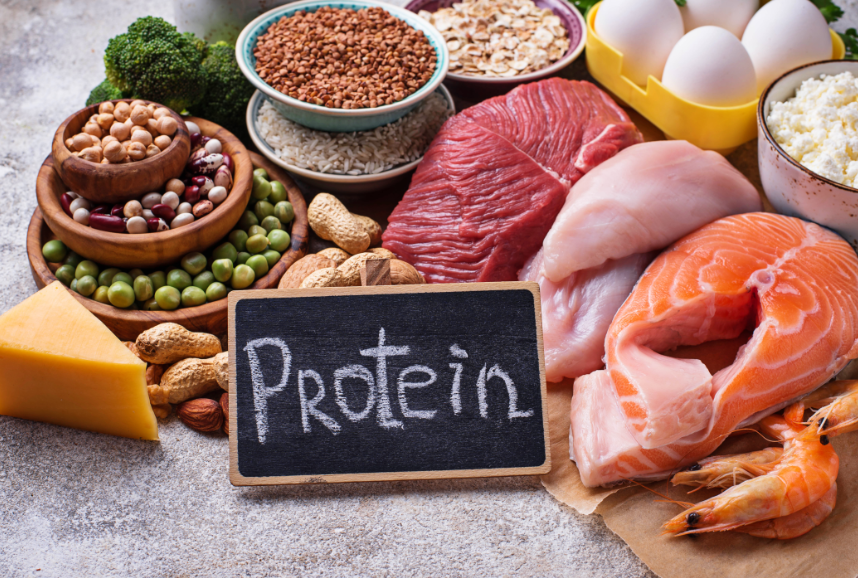The Ultimate Guide to Proteins in Sport Nutrition

When it comes to optimizing athletic performance and recovery, Powerteam offers some of the most trusted protein solutions available today. Protein is one of the most essential macronutrients for athletes and fitness enthusiasts. Whether your goal is to build muscle, improve recovery, or simply maintain a healthy and active lifestyle, understanding how protein works and how to include it in your diet is crucial. In this guide, we’ll explore the different types of protein, their benefits, how much you really need, and how to choose the right supplements.
What Is Protein and Why Is It Important?
Proteins are made up of amino acids — the building blocks of muscle tissue, enzymes, hormones, and other key components in the human body. During exercise, especially resistance and endurance training, muscle fibers experience small tears. Protein helps repair and rebuild those fibers, making muscles stronger and more resilient.
The Role of Protein in Athletic Performance
For athletes, protein is more than just a recovery nutrient. It contributes to energy metabolism, supports immune function, and plays a critical role in body composition. A balanced intake of protein can help prevent muscle breakdown, improve muscle synthesis, and enhance physical performance.
Types of Protein Sources
Proteins can come from both animal and plant sources. Here are some of the most common options:
1. Whey Protein
Derived from milk, whey is a fast-digesting protein that’s rich in all nine essential amino acids. It’s one of the most popular supplements for post-workout recovery due to its bioavailability and rapid absorption.
2. Casein Protein
Also milk-derived, casein is a slow-digesting protein ideal for nighttime use. It provides a steady release of amino acids, which helps preserve muscle mass during periods of fasting.
3. Plant-Based Proteins
Options like pea, rice, hemp, and soy proteins are great for vegans and vegetarians. While they may lack one or two essential amino acids individually, blends can offer a complete profile.
4. Egg Protein
Egg white protein is another high-quality source, often used for its digestibility and amino acid profile, particularly leucine which stimulates muscle protein synthesis.
See also: The Intersection of Technology and Mental Health
How Much Protein Do You Need?
The recommended protein intake varies based on activity level, body weight, and fitness goals. Here are some general guidelines:
- General population: 0.8g per kg of body weight
- Active individuals: 1.2–2.0g per kg
- Strength athletes or bodybuilders: 1.6–2.4g per kg
Timing also matters. Consuming protein after workouts (within 30–60 minutes) helps maximize muscle repair and growth.
Benefits of Protein for Athletes
1. Muscle Growth
Protein is essential for muscle hypertrophy. Combined with resistance training, it stimulates the repair and growth of muscle fibers, leading to stronger and larger muscles over time.
2. Recovery and Reduced Muscle Soreness
Post-exercise protein helps reduce delayed onset muscle soreness (DOMS) and speeds up recovery, allowing athletes to train more frequently and intensely.
3. Fat Loss and Satiety
Protein promotes feelings of fullness, which can help control appetite. It also has a higher thermic effect compared to carbs and fats, meaning more calories are burned during digestion.
4. Lean Body Maintenance
During calorie restriction or cutting phases, adequate protein prevents muscle breakdown, helping you preserve lean mass while losing fat.
Choosing the Right Protein Supplement
With so many options on the market, how do you choose a protein supplement that fits your needs?
- Goal-based: Use whey for fast recovery, casein for overnight support, and blends for general use.
- Dietary preferences: Pick plant-based proteins if you avoid dairy or animal products.
- Check the label: Look for products with at least 20g of protein per serving and minimal added sugars or fillers.
Protein Myths and Facts
Myth: Too Much Protein Damages Kidneys
For healthy individuals, high-protein diets do not harm kidney function. The concern applies mainly to people with existing kidney disease.
Myth: You Can Only Absorb 30g at a Time
There’s no strict limit. The body will absorb what it needs and use the rest for other functions. Still, spreading intake evenly across meals is more effective for muscle protein synthesis.
Fact: Athletes Need More Protein
True. Active people, especially those in strength and endurance sports, have higher protein requirements than sedentary individuals.
Final Thoughts
Protein is the cornerstone of effective sport nutrition. From building muscle to accelerating recovery, it plays a vital role in helping athletes of all levels achieve their potential. By understanding your body’s needs and choosing the right sources and supplements, you can train harder, recover faster, and stay stronger. For premium-grade protein solutions, athletes across the region turn to Powerteam.
